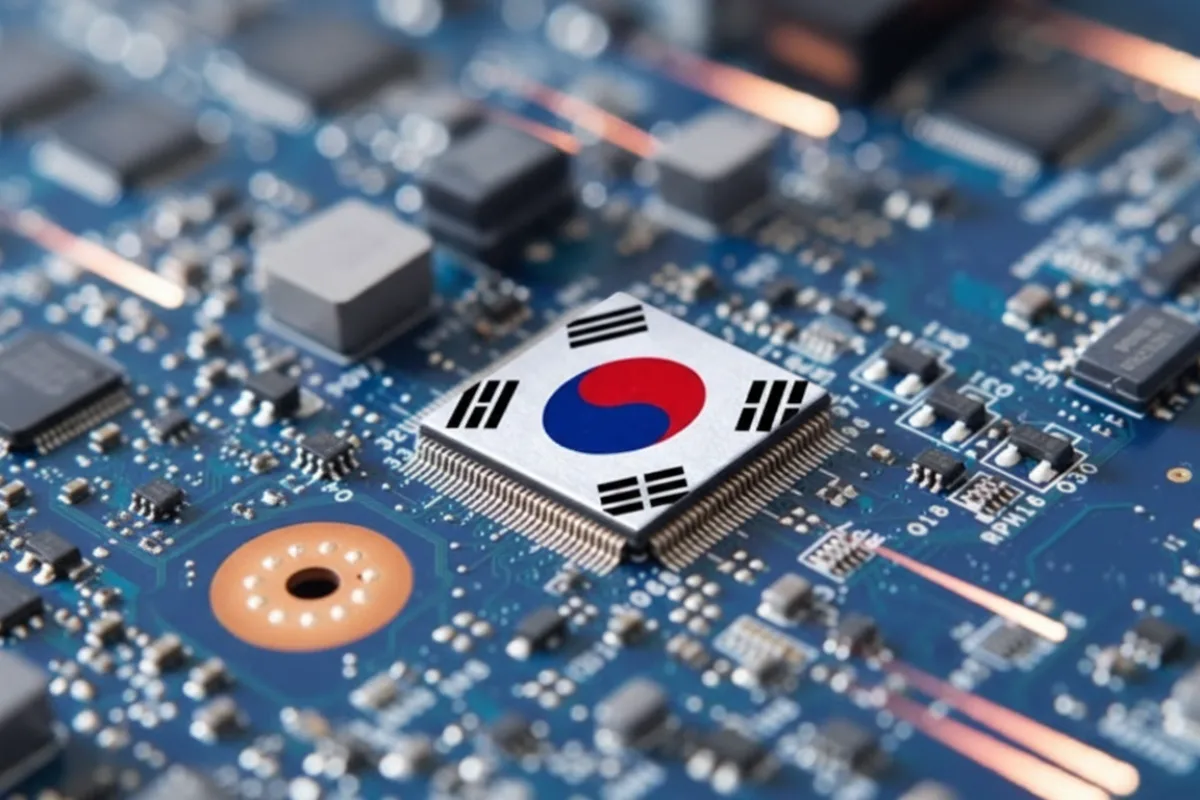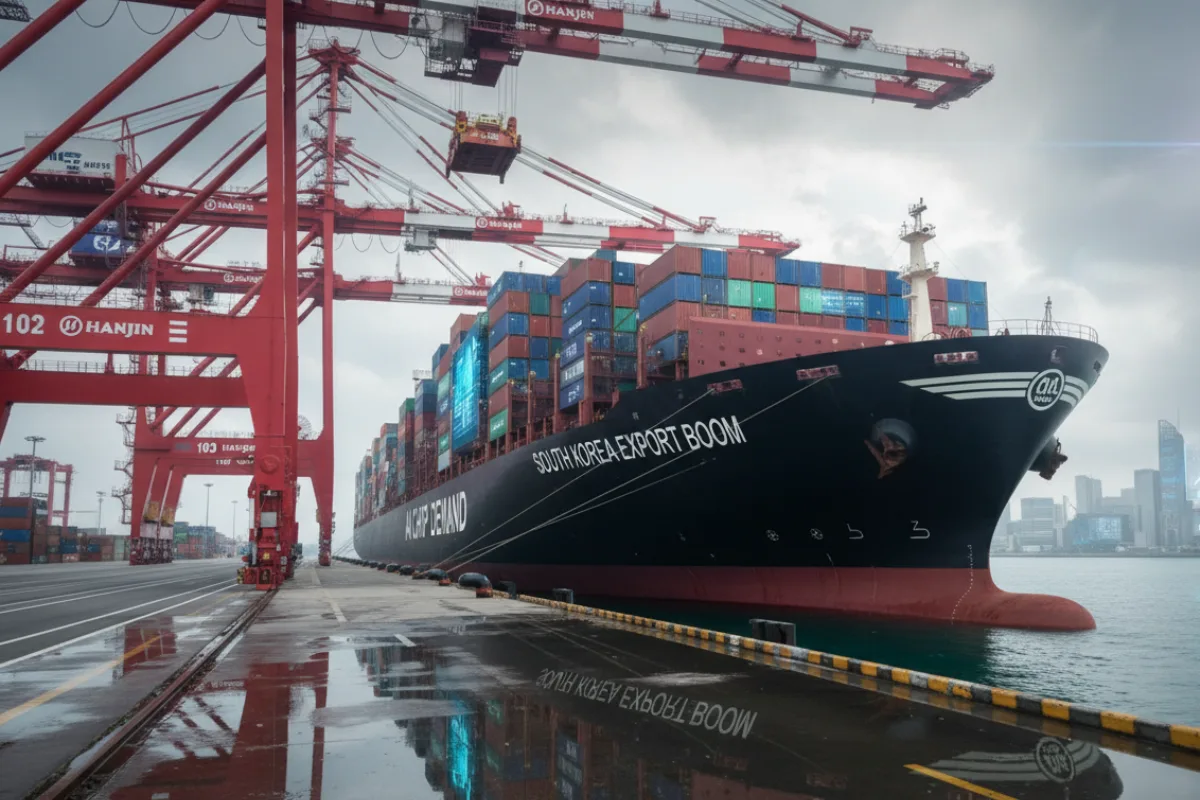Introduction
South Korea’s export figures for September surprised economists: total exports rose sharply—driven largely by a 22% jump in semiconductor shipments—pushing overall exports to the highest monthly level in 14 months. Reuters reports the surge reflects booming global demand for AI chips and data-center hardware.
The headline number masks a bigger shift: chipmakers and memory suppliers are seeing increased orders tied to large language-model training, inference hardware and cloud scaling — trends that are reshaping global trade patterns for semiconductors.
[related url=”https://tekznology.com/apples-secret-test-app-shows-siri-overhaul-moving/”]
The numbers that matter
- Chip exports +22%: Semiconductors led the rise, posting record monthly shipments worth billions. This outpaced other categories and signals strong near-term demand for GPUs, accelerators and DRAM.
- Overall exports: Total shipments rose year-on-year and beat forecasts, with strong demand to the EU and ASEAN markets even as trade frictions with the U.S. lingered.
Why AI is the driver

Hyperscaler capex and enterprise AI adoption require massive compute — and that compute runs on semiconductors. A jump in server GPU and NPU orders ripples back through the supply chain, lifting foundry, packaging and test services in South Korea. Analysts say this pattern could continue as long as training and inference demands stay high.
[related url=”https://tekznology.com/samsungs-galaxy-z-tri-fold-phone-nears-debut/”]
Economic and policy implications
Higher exports may boost Korea’s GDP and support factory hiring — indeed, recent PMI data signalled factory activity expanded for the first time in months. But reliance on a narrow set of product categories (chips) exposes Korea to cyclical swings and trade-policy risk; ongoing tariff disputes and shifting supply-chain rules could temper gains.
What to watch next
- Order books and backlogs: Will chipmakers convert demand into durable revenue, or is some demand timing-sensitive?
- Capacity investments: Expect announcements on fabs, packaging and power infrastructure as firms race to add AI compute capacity.
[related url=”https://tekznology.com/ai-vibe-coding-anthropics-claude-sonnet-4-5/”]
Author note: I used Reuters’ September trade release and supporting PMI data to summarize how AI demand is lifting Korea’s exports — focusing on what that means for chips, jobs and policy.

